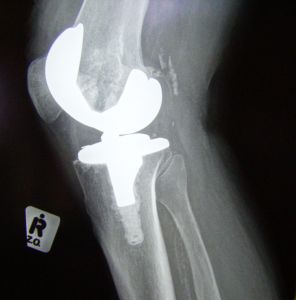Boston’s PBS affiliate, WGBH, recently featured a program showing what it is like to be in the operating room during a minimally invasive total hip replacement surgery. Traditional methods involved making a 12-inch incision along the side of a patient’s hip and dislocating the hip joint from the pelvis. This method, still used in patients over 60 and who have other health issues, requires patients to stay in the hospital for days or even weeks and undergo a slow and painful recovery process. The large incision also increases the risk patients will develop a serious infection following surgery.
 With minimally invasive techniques, only a six-inch incision is needed at the top of a patient’s hip, and dislocation is not required in many cases. This means a patient can typically go home that same night and sleep in his or her own bed. This also means there will be less pain during recovery, less risk of an artificial hip failure, and less time away from work or one’s other daily routine.
With minimally invasive techniques, only a six-inch incision is needed at the top of a patient’s hip, and dislocation is not required in many cases. This means a patient can typically go home that same night and sleep in his or her own bed. This also means there will be less pain during recovery, less risk of an artificial hip failure, and less time away from work or one’s other daily routine.
The reason doctors are able to perform a minimally invasive total hip replacement surgery is though the use of modern technology. It all begins with surgeons and radiologists working together to take a CT scan of the patient’s pelvic area while he or she is in the operating room. Doctors then use a computer and the CT image to make a three dimensional virtual model of exactly how the operation will work. There is an electronic signaling device used to guide the surgeon while he or she is watching a monitor while the movements occur inside the patient.
Continue reading
 Product Liability Lawyer Blog
Product Liability Lawyer Blog










